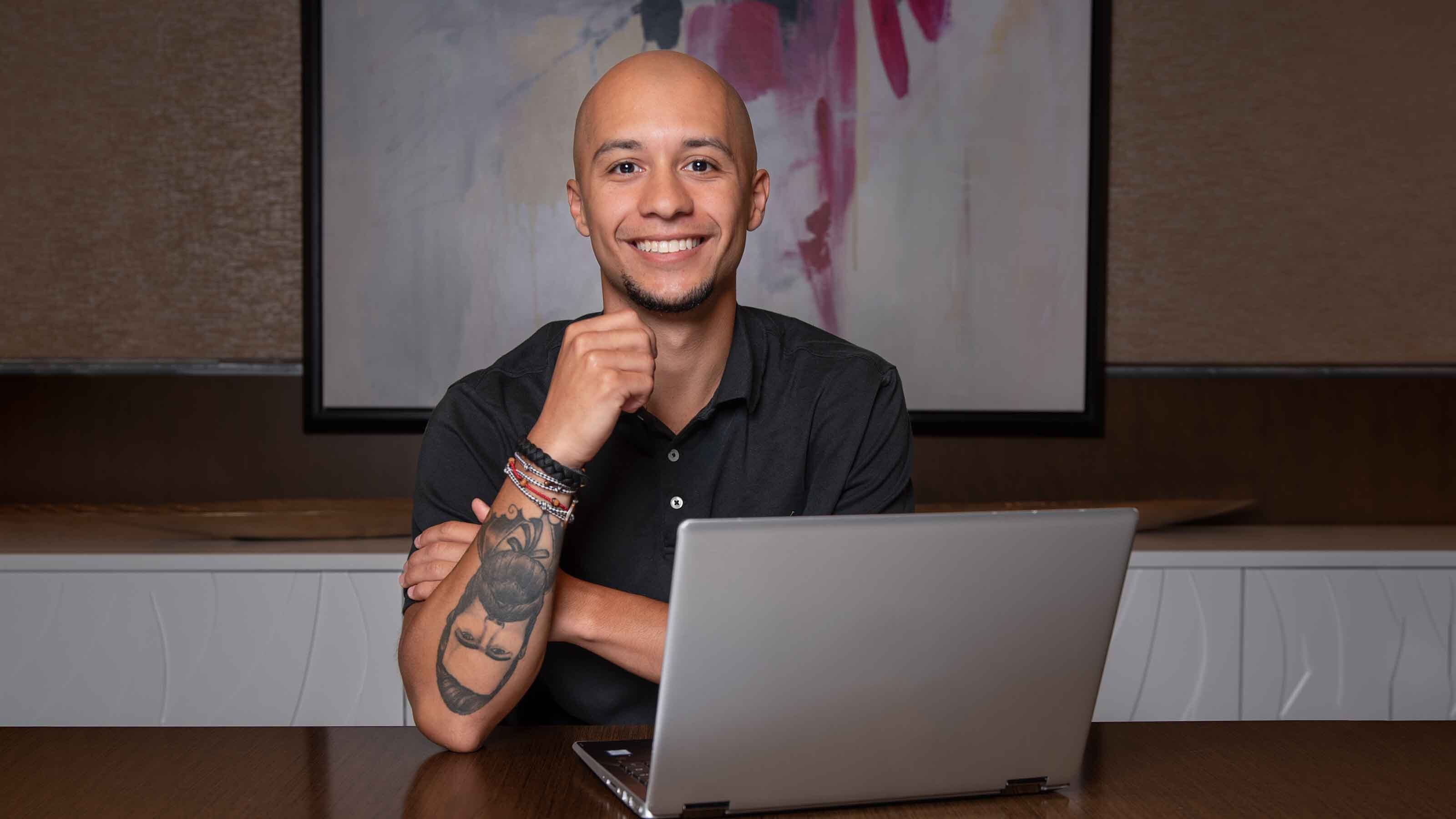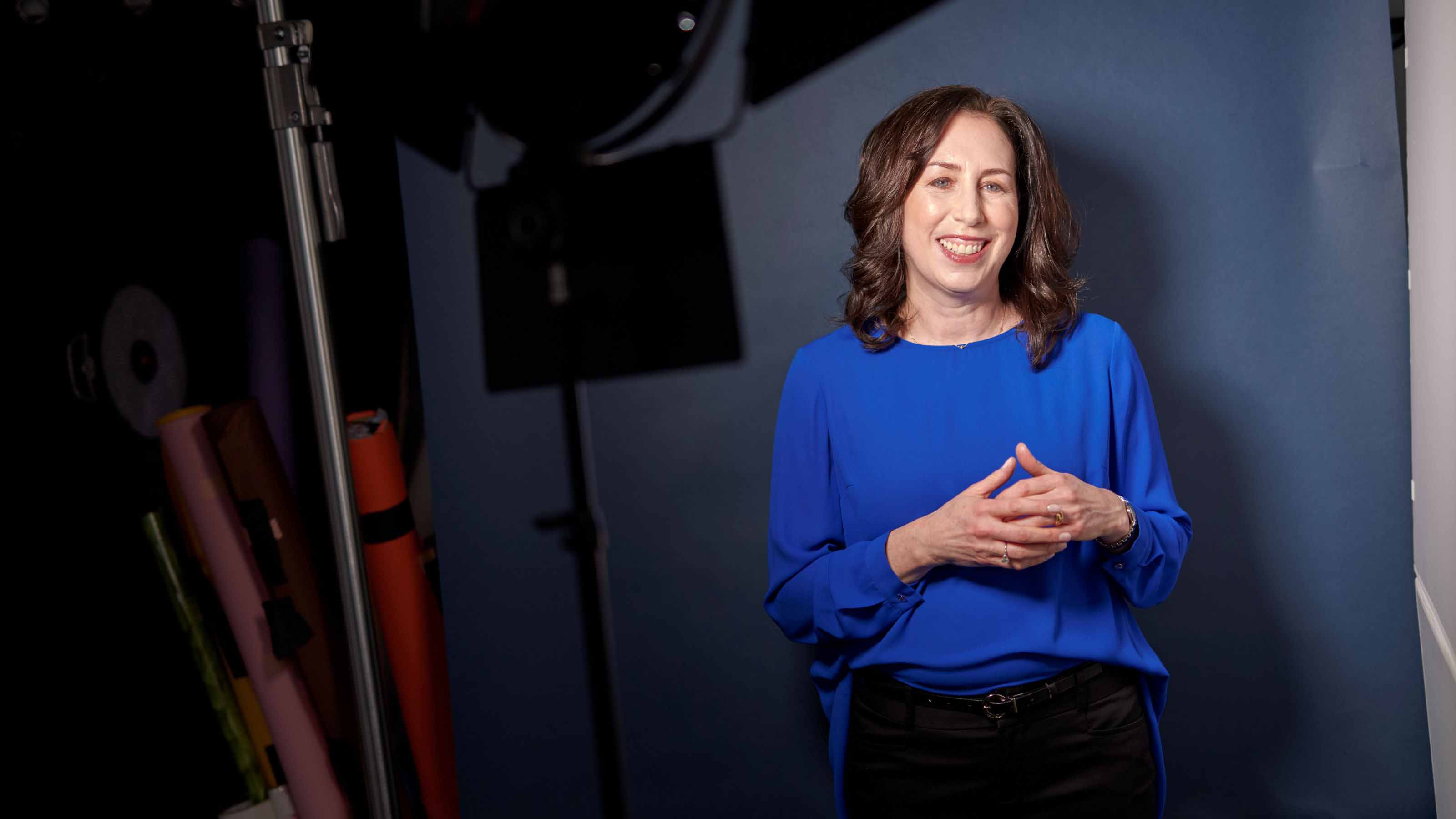Four Smart Steps To Take Before Buying Your First Home
Buying your first home can be daunting. Here are four things you need to do years before you start house-hunting to prepare financially for the biggest purchase of your life.

Donna LeValley

Profit and prosper with the best of Kiplinger's advice on investing, taxes, retirement, personal finance and much more. Delivered daily. Enter your email in the box and click Sign Me Up.
You are now subscribed
Your newsletter sign-up was successful
Want to add more newsletters?

Delivered daily
Kiplinger Today
Profit and prosper with the best of Kiplinger's advice on investing, taxes, retirement, personal finance and much more delivered daily. Smart money moves start here.

Sent five days a week
Kiplinger A Step Ahead
Get practical help to make better financial decisions in your everyday life, from spending to savings on top deals.

Delivered daily
Kiplinger Closing Bell
Get today's biggest financial and investing headlines delivered to your inbox every day the U.S. stock market is open.

Sent twice a week
Kiplinger Adviser Intel
Financial pros across the country share best practices and fresh tactics to preserve and grow your wealth.

Delivered weekly
Kiplinger Tax Tips
Trim your federal and state tax bills with practical tax-planning and tax-cutting strategies.

Sent twice a week
Kiplinger Retirement Tips
Your twice-a-week guide to planning and enjoying a financially secure and richly rewarding retirement

Sent bimonthly.
Kiplinger Adviser Angle
Insights for advisers, wealth managers and other financial professionals.

Sent twice a week
Kiplinger Investing Weekly
Your twice-a-week roundup of promising stocks, funds, companies and industries you should consider, ones you should avoid, and why.

Sent weekly for six weeks
Kiplinger Invest for Retirement
Your step-by-step six-part series on how to invest for retirement, from devising a successful strategy to exactly which investments to choose.
Becoming a homeowner can be a daunting process for anyone, especially young adults or anyone without experience making such big purchases. Rushing through a multi-step financial process — deciding how much home you can afford, fixing any blemishes on your credit report and saving for a down payment — can prove costly.
Years before you even think about hiring a real estate agent and starting an in-person home search, you need to take the time to prepare yourself financially.
If you intend to buy a house in the next five years or so, here are four steps to help lead you down the path to homeownership.
From just $107.88 $24.99 for Kiplinger Personal Finance
Become a smarter, better informed investor. Subscribe from just $107.88 $24.99, plus get up to 4 Special Issues

Sign up for Kiplinger’s Free Newsletters
Profit and prosper with the best of expert advice on investing, taxes, retirement, personal finance and more - straight to your e-mail.
Profit and prosper with the best of expert advice - straight to your e-mail.
Step 1: Consider where you want to live
Don’t buy a home where you live now, just for the sake of homeownership. For many twenty- and thirtysomethings still exploring their career paths, buying a home can really limit their choices. If you’re serious about becoming a homeowner, make sure the locale you decide to buy in is a place you won’t mind sticking around for a while.
Experts often advise would-be buyers to plan on staying in a new home no fewer than five to seven years. “You’re going to spend thousands of dollars to get into the home. To get out of it is going to be equally expensive and may possibly cost more when you do it in less than five years or in a down market,” says Keith Gumbinger, vice-president of HSH.com, a publisher of mortgage information and rates.
How do you decide which area is best for you to settle down in? You should consider the local job market, cost of living and available housing stock. Other key factors that will likely impact your quality of life: the local demographics, access to public transportation or parking, weather and the social scene. If you’re single, for example, you might be interested in places with an abundance of other unmarried people. Or people with limited budgets might want to look at cities where they can buy a home and still afford to have a life outside of the office.
Step 2: Determine how much home you can afford
Once you’ve decided where you want to live, use a home search web site, such as Realtor.com or Trulia.com, to get a detailed look at the market, recommends Eric Tyson, co-author of “Home Buying for Dummies.” It’ll provide perspective on the types of properties for sale and what sellers are asking for. Seeing exactly how much homes cost will help you determine how much you can actually afford and how much you'll need to save for a down payment.
If homes in your desired neighborhood are outside your price range, you can delay buying until you save more money, or you can downsize the type of home you’re looking to buy, find a fixer-upper or search in a different neighborhood.
That’s what happened when I embarked on a new home search with my boyfriend in the Washington, D.C., metro area. In the beginning, he was pretty adamant about being in the city — me, not so much. We soon realized that our list of must-haves (a modern home with three bedrooms, two bathrooms, central air conditioning and designated parking) meant we could only afford a fixer-upper in northwest Washington. Because neither of us is handy — and I wasn’t comfortable buying a place that needed a ton of work — that wasn’t an option.
After that reality check, we broadened our search area and settled on a new townhome community located in a Maryland suburb about ten minutes outside D.C. Homes there cost about half as much as comparable homes we’d seen in the city.
Step 3: Boost your credit
Your credit score plays an important role in qualifying for a mortgage. A score of 740 or above will help you secure the best interest rates. In the Washington area, for example, that can be as little as 6.5% for a $200,000, 30-year fixed-rate mortgage with a 20% down payment, according to Bankrate.com. If your score is lower than 740, however, expect to pay a higher rate. For that same loan in the D.C. metro region, if your credit score ranges from 680 to 699, the lowest rate you’d be able to get is about 7.2%.
Many young would-be home buyers might find themselves with blemishes on their credit report, thanks to missed student loan or credit card payments. Lucky for me, I learned long before pursuing homeownership that such behavior comes back to haunt you in the form of a low credit score. I've changed my bad spending habits and boosted my score. If you check your credit report early, you'll have ample time to correct any issues. “What you don’t want is to have to address a bunch of mistakes on your credit report while actively looking for a home and trying to get approved for a mortgage loan,” says Gumbinger.
Visit AnnualCreditReport.com to get a free report from each of the three major credit bureaus. If you notice a problem in one report, be sure to check with the other two bureaus, too. You can dispute an error by contacting the credit bureau directly. Note that your free credit report does not include your actual credit score. You'll usually have to pay to see your FICO score. At myfico.com, you can get your credit report and FICO score from each of the three credit bureaus for $14.50 each. (Your score can vary from bureau to bureau).
Step 4: Start saving for a down payment
In addition to building stellar credit, you should also save enough for a down payment of at least 20% of the home price to snag the best mortgage terms. That amount saves you from having to pay for private mortgage insurance, or PMI, which protects the lender if you default on the loan. Even with an excellent credit score, if you put just 5% down on a home that costs $431,000 (the national median existing home price as of the third quarter of 2023), private mortgage insurance will cost you about $131.40 per month.
That down payment’s not chump change; 20% of $436,800 amounts to $87,360. For many young adults with starting or even mid-level salaries, it can take many years to stash away that much. Start saving now!
You should keep the cash liquid because you're aiming to use it in the next few years. We stored our funds in a regular savings account to give us direct access to it. You might also consider a short-term certificate of deposit. Neither option will earn you much right now, but your money will be safe from market losses and easy to tap as soon as you need it. In the meantime, use our savings calculator to help you find the best place to safely grow your money.
When the time is right, you can move on to the five big steps to buying your first home.
Related Content
Profit and prosper with the best of Kiplinger's advice on investing, taxes, retirement, personal finance and much more. Delivered daily. Enter your email in the box and click Sign Me Up.

Browne Taylor joined Kiplinger in 2011 and was a channel editor for Kiplinger.com covering living and family finance topics. She previously worked at the Washington Post as a Web producer in the Style section and prior to that covered the Jobs, Cars and Real Estate sections. She earned a BA in journalism from Howard University in Washington, D.C. She is Director of Member Services, at the National Association of Home Builders.
- Donna LeValleyRetirement Writer
-
 Ask the Tax Editor: Federal Income Tax Deductions
Ask the Tax Editor: Federal Income Tax DeductionsAsk the Editor In this week's Ask the Editor Q&A, Joy Taylor answers questions on federal income tax deductions
-
 States With No-Fault Car Insurance Laws (and How No-Fault Car Insurance Works)
States With No-Fault Car Insurance Laws (and How No-Fault Car Insurance Works)A breakdown of the confusing rules around no-fault car insurance in every state where it exists.
-
 7 Frugal Habits to Keep Even When You're Rich
7 Frugal Habits to Keep Even When You're RichSome frugal habits are worth it, no matter what tax bracket you're in.
-
 Debit Cards vs Charge Cards
Debit Cards vs Charge Cardscredit & debt Whether sticking to a budget or reaping big rewards, understand whether debit cards vs charge cards are right for you.
-
 Five Big Steps to Buying Your First Home
Five Big Steps to Buying Your First Homereal estate We told you how to prepare years ahead of your first home purchase. Now here is how to close the deal.
-
 The 15 Cheapest Places to Live: US Cities Edition
The 15 Cheapest Places to Live: US Cities Editionplaces to live Have a look at the cheapest places to live in America for city dwellers. Is one of the cheapest places to live in the U.S. right for you?
-
 Sharing His Path to Success
Sharing His Path to SuccessStarting Out: New Grads and Young Professionals This Native American studied tech in the Air Force and landed his dream job. Now he’s giving back.
-
 PODCAST: How to Find a Job After Graduation, with Beth Hendler-Grunt
PODCAST: How to Find a Job After Graduation, with Beth Hendler-GruntStarting Out: New Grads and Young Professionals Today’s successful job applicants need to know how to ace the virtual interview and be prepared to do good old-fashioned research and networking. Also, gas prices are high, but try a little global perspective.
-
 Preparing for a New Life
Preparing for a New LifeStarting Out: New Grads and Young Professionals While this Afghan refugee waits for resettlement, she is working to bring her family to the U.S.
-
 When It’s Time to Drop Your Parents’ Health Insurance
When It’s Time to Drop Your Parents’ Health InsuranceStarting Out: New Grads and Young Professionals Thanks to the Affordable Care Act, the uninsured rate for twenty-somethings has plummeted.
-
 Financial Planning We Can Afford
Financial Planning We Can AffordFinancial Planning You don't have to be a wealthy baby boomer to hire a financial adviser.